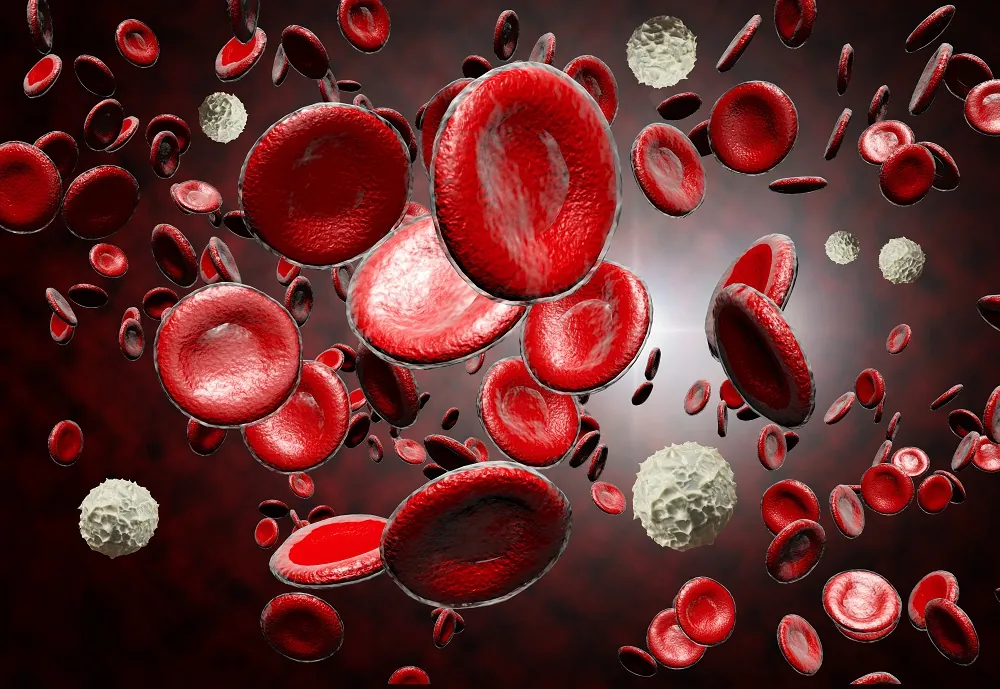You might think that being overweight may cause you health problems only until you finally shed those extra pounds, at which point everything will be fine again. It sounds reasonable, but it might be not so easy. According to a new study published in the Journal of Experimental Medicine on December 27, the negative effects of obesity might last even after that extra weight has been lost.
Yes, it appears that being overweight can have lasting consequences that persist long after the weight comes off. Damage to the hematopoietic stem cells can be caused by being overweight, making it all the more reason to try to maintain a healthy weight as part of your personal health and longevity strategy.
What the study found out
In a nutshell, the study shows that the oxidative stress induced by obesity causes the overexpression of the transcription factor Gfi1 in hematopoietic stem cells (HSCs), pushing them to produce myelocytes that, if you’re out of luck, may well end up becoming preleukemic as well[1].
As if this wasn’t bad enough, the overexpression may persist even if affected HSCs are then transplanted into a normal environment. This means that the damage has a lasting and long-term effect, and even restoring a healthy environment does not fully rectify the damage done.
To explain further, oxidative stress is basically an imbalance between reactive oxygen species (ROS) and the body’s ability to clear them out. ROS are oxygen-containing molecules that, like their name implies, are extremely reactive. Even though ROS have normal, beneficial functions in the body as well, because of their high reactivity, they often end up reacting with molecules better left alone, damaging them in the process or causing them to do things they shouldn’t do.
Obesity tends to increase the body’s oxidative stress, and as the study found out, this causes the production of too much Gf1 in hematopoietic stem cells. As said, Gfi1 is a transcription factor—that is, a protein controlling the rate at which certain genetic information contained in DNA is transcribed into RNA and ultimately translated into specific proteins with a certain job.
Too much Gf1 expression in hematopoietic stem cells—that is, stem cells that “produce” blood and immune cells—will skew the production towards myelocytes, white blood cells that are normally found in bone marrow but appear in circulating blood as a consequence of diseases such as myelogenous leukemia.
Of mice and men
In the mouse model the researchers used in their study, the negative effects of obesity on HSCs lasted even after they were transplanted into a non-obese mouse. This doesn’t necessarily mean that we would observe the exact same results in obese human patients, but it does suggest that using damaged HSCs from obese human donors may present some risk.
The next step will be to determine if human HSCs suffer the same fate as those in mice. It is worth noting that humans have more robust repair systems that allow us to resist and repair ROS damage better than mice. It may be the case that human HSCs could be more resistant to such damage and that you may need to be overweight for a longer time before significant damage occurs.
Conclusion
Naturally, as prevention is always better than cure, you should try your best to maintain a healthy weight and spare yourself—and other people, should you ever be a HSC donor—obesity-induced troubles. Even if human HSCs are more resistant to such long-term damage, there are a myriad of other reasons why maintaining a healthy weight is a good idea for your health and longevity.
Literature
[1] Lee, J. M., Govindarajah, V., Goddard, B., Hinge, A., Muench, D. E., Filippi, M. D., … & Reynaud, D. (2017). Obesity alters the long-term fitness of the hematopoietic stem cell compartment through modulation of Gfi1 expression. Journal of Experimental Medicine, jem-20170690.





